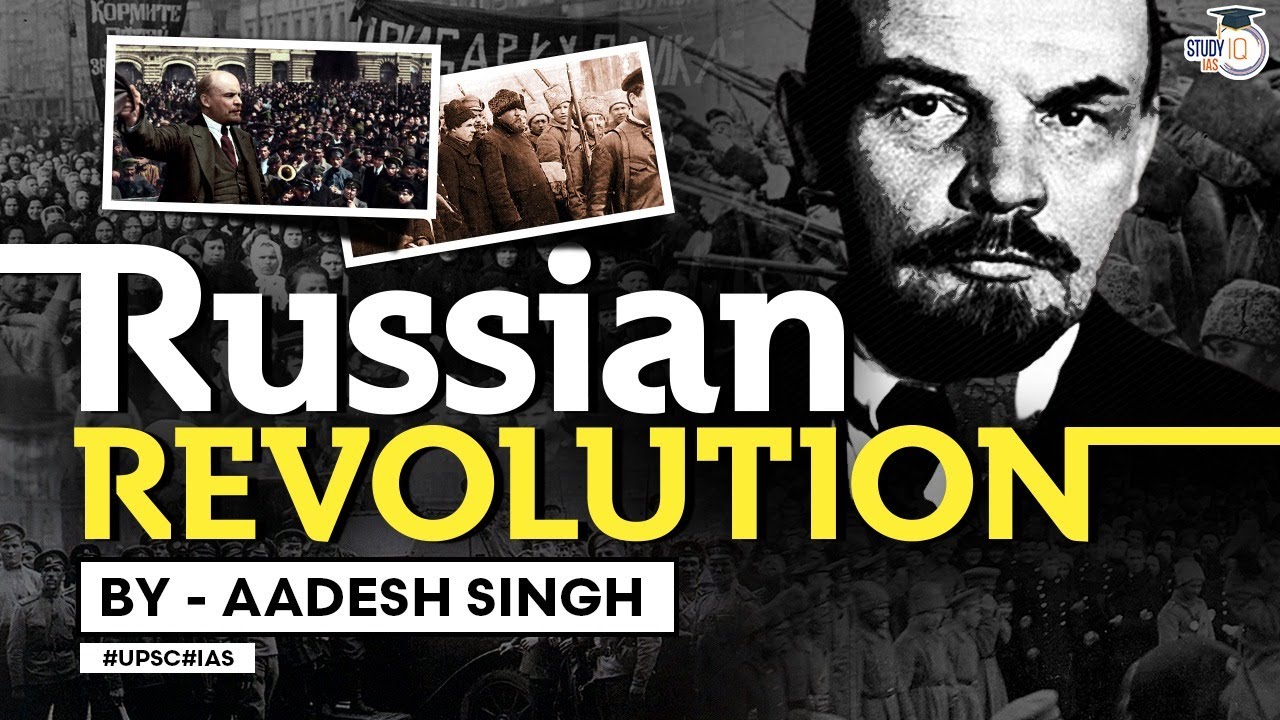Russian Civil War (1/5)
Summary
TLDRThe Russian Civil War, ignited by the aftermath of the 1917 October Revolution, was a tragic and violent period in Russian history. The Bolsheviks, led by Lenin, seized power but faced strong opposition from various factions, including the White Army. The war's roots lay in deep historical inequalities, exacerbated by World War I. Despite initial success, the Bolsheviks faced resistance from both domestic and foreign forces. Key events included the fall of Petrograd, military confrontations, and the shifting alliances of Cossack forces. The war ultimately shaped the Soviet state, leaving millions dead and disillusioned, while transforming Russia's political and social fabric.
Takeaways
- 😀 The Russian Civil War began after the 1917 October Revolution, a time marked by violence and cruelty as hopes for democracy were crushed.
- 😀 The Bolsheviks, a small group of revolutionaries, seized power and suppressed opposition to maintain control of Russia.
- 😀 The roots of the civil war can be traced to historical issues like the long-lasting suffering of peasants and the legacy of serfdom in Russia.
- 😀 Russia's entry into World War I in 1914 exacerbated internal problems, leading many to believe revolution was the only solution.
- 😀 The February Revolution of 1917 led to the abdication of Tsar Nicholas II, and the establishment of a provisional government.
- 😀 The Bolsheviks, led by Lenin, took advantage of the new freedom after the February Revolution and began organizing to seize power.
- 😀 The failure of the Provisional Government, especially due to its inability to end the war, led to the rise of Bolshevik influence.
- 😀 On October 25, 1917, the Bolsheviks attacked the Winter Palace and began the Russian Civil War, with the first military engagement occurring in Petrograd.
- 😀 Opposition to the Bolsheviks remained strong in Moscow, where military cadets loyal to the Provisional Government seized key buildings.
- 😀 The White Volunteer Army, formed in the south by generals and former Russian army officers, fought the Bolsheviks but lacked the necessary military resources, eventually appealing for foreign aid.
Q & A
What event triggered the Russian Civil War?
-The Russian Civil War was triggered by the October Revolution of 1917, which resulted in the Bolsheviks seizing power in Russia after the abdication of Tsar Nicholas II.
What were the main causes of the Russian Civil War?
-The main causes of the Russian Civil War were deep-rooted issues in Russian society, such as the legacy of serfdom, poverty, lack of political reforms, the devastation of World War I, and dissatisfaction with the Provisional Government’s inability to address these issues.
Who were the key leaders of the Bolsheviks during the Russian Civil War?
-The key leader of the Bolsheviks during the Russian Civil War was Vladimir Lenin, who played a central role in the October Revolution and in directing the Bolshevik forces during the conflict.
What was the role of the Provisional Government in the Russian Civil War?
-The Provisional Government, formed after the abdication of Tsar Nicholas II, failed to address key issues such as continuing the war and land reforms, leading to the Bolsheviks taking power and sparking the Civil War.
How did Lenin manage to gain power in 1917 despite being exiled?
-Lenin was allowed to return to Russia from exile in April 1917 through German territory in a sealed train, where he quickly capitalized on the discontent with the Provisional Government and led the Bolsheviks in seizing power during the October Revolution.
What was the significance of the October 25th Bolshevik attack on the Winter Palace?
-The October 25th attack on the Winter Palace marked the beginning of the Bolshevik takeover of power in Russia. Despite limited casualties, it symbolized the overthrow of the Provisional Government and the Bolsheviks' rise to power.
What were the key characteristics of the White Army in the Russian Civil War?
-The White Army consisted of various anti-Bolshevik factions, including Tsarist loyalists, military leaders, and Cossacks. They were united in their opposition to Bolshevik rule but were divided in their goals, which weakened their position in the war.
What role did foreign powers play in the Russian Civil War?
-Foreign powers, including Britain, France, and the United States, provided limited support to the White Army in an attempt to prevent the spread of communism, but their support was inconsistent and often ineffective, leading to the eventual defeat of the White forces.
How did the Bolsheviks manage to maintain power despite opposition?
-The Bolsheviks maintained power through effective propaganda, strong leadership under Lenin, and a highly mobile and determined military force, including the Red Guards. Their ability to capitalize on discontent and fractures within the opposition was also crucial.
What was the significance of the 'Ice March' during the Civil War?
-The 'Ice March' was a key event where the White Army, led by General Kornilov, marched across snow-covered terrain to attack the Cuban capital, facing severe casualties and ultimately failing to capture the city. It highlighted the difficulties faced by the White forces in the war.
Outlines

هذا القسم متوفر فقط للمشتركين. يرجى الترقية للوصول إلى هذه الميزة.
قم بالترقية الآنMindmap

هذا القسم متوفر فقط للمشتركين. يرجى الترقية للوصول إلى هذه الميزة.
قم بالترقية الآنKeywords

هذا القسم متوفر فقط للمشتركين. يرجى الترقية للوصول إلى هذه الميزة.
قم بالترقية الآنHighlights

هذا القسم متوفر فقط للمشتركين. يرجى الترقية للوصول إلى هذه الميزة.
قم بالترقية الآنTranscripts

هذا القسم متوفر فقط للمشتركين. يرجى الترقية للوصول إلى هذه الميزة.
قم بالترقية الآنتصفح المزيد من مقاطع الفيديو ذات الصلة
5.0 / 5 (0 votes)






